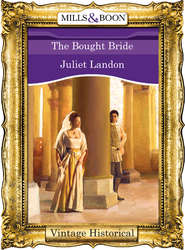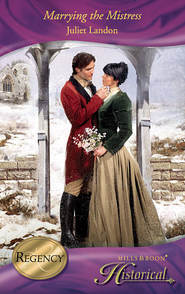По всем вопросам обращайтесь на: info@litportal.ru
(©) 2003-2024.
✖
Betrayed, Betrothed and Bedded
Настройки чтения
Размер шрифта
Высота строк
Поля
‘Yes, stringing him along. She knew exactly what he was about and she was certainly not doing anything to spare Anne Boleyn’s feelings, was she? Pious, mousy, unscrupulous Jane, enticing a married man to please her family. Well, I shall not do it, Mother. I’m sorry, but I draw the line at that.’
‘You must do it, dear. Would you deny King Henry the pleasure of talking to a well bred and beautiful young woman? Because that is what you are.’
‘If he put more effort into his new marriage, he could easily do that with the queen. She is anxious to please him in any way she can, if only he’d see it.’
‘Mmm, well, coming here without her isn’t going to do much to help, is it? Now come and take a look at these gowns and let’s see what’s to be done.’
It was not hard to understand where Ginny had acquired her style and elegance. Even though she chose not to be a courtier, Lady Agnes D’Arvall was a keen needlewoman for whom sewing was never a chore as long as she had a team of the best tailors and seamstresses, and a husband to send her bolts of fine fabrics from the London merchants. Her eldest daughter Maeve, now Lady Betterton, spent some of her time in the London house at Westminster near her husband, who was employed in the king’s Great Wardrobe. Consequently, the Bettertons and D’Arvalls were amongst the best-dressed families known to the royals, and ostensibly it was this flair that the king had intended to exploit when he’d sent for Ginny to advise his new German wife on the latest English fashions.
Ginny’s thoughts, however, were far from the rich heap of velvets, damasks, satins, and silks on the bed and, as soon as her mother had left the room, she returned once more to the window seat, hoping that the stillness of the darkening landscape would help to clear her mind. It did not. Having come home expecting a rest from the empty flattery doled out by the king and his courtiers, she now found herself in a situation where she would have to suffer more of it rather than less.
Even worse was the king’s intention to marry her to a man who wanted her only for the rewards he would be granted, a man who’d been told to make himself known to her, for why else would he have appeared beside her father, pretending assistance? She had asked herself this same question all the way home. Now she knew. After four weeks of noticeable indifference and stand-offishness, it had taken the king’s command, offer, bribery, call it what you will, to force him to speak, then to make an absurd attempt at flattery by telling her he would not have confused her with another. ‘The manners will come,’ he’d said patronisingly. As if he could teach her anything.
With all the painful sensitivity of a very young woman, Ginny had been baffled and hurt when, after being assured by her parents that finding her a husband would not be difficult, their eligible neighbour had declined Sir Walter’s offer in favour of the beautiful heiress Magdalen Osborn. That had been the cruellest part of all, and Ginny was sure he must have known it.
At court, once the shock of seeing him again had abated, she had done her best to convince both herself and him that he was the very last man she would have chosen as a husband, giving him not the smallest opportunity to revise the decision. Unable to separate sexual attraction from the lingering pain of rejection, it had seemed to Ginny that the natural antidote was to avoid him at all costs and to show that she had always been quite beyond his reach. Even if he had not been the handsomest man at court.
At the royal court for much of the three years since his first marriage, Sir Jon’s connection with his neighbours had been brief. When the king had visited D’Arvall Hall last year, Sir Jon had been on a mission for his friend Sir Thomas Cromwell, the King’s principal secretary, who occasionally employed him. Not understanding the workings of the royal rota, Ginny had naturally put a different construction on his absence that heaped yet more fuel on her resentments.
‘Why?’ she whispered angrily. ‘Why him, of all men, when he must want this as little as I do? It’s so degrading. Bad enough to be pushed into marriage for the convenience of others, but to marry a man who must be commanded, after making it clear he doesn’t have a mind to it, is shaming. All the court will know of it, for they’ve seen how things are between us. And now I shall be obliged to face down all the stares and pretend all is well. As for the rest...ugh! It hardly bears thinking about.’ Wrapping herself warmly against the icy passageways and open spaces of the courtyard, she crossed over to the stillroom near the kitchen door where Mistress Molly had already begun the task of pounding lumps of sugar in a mortar with a pestle as big as her arm. ‘The king loves his marchpane,’ she puffed, as Ginny entered.
‘Done the almonds yet?’ Ginny said, looking round at the benches lined with jars and parchment-lidded pots. ‘It might be best to let them blanch while you do that. I’ll do them, if you like. For a favour.’
Mistress Molly had been taught the art of sugarwork and simpling by her aunt who, despite being thought a witch, had died peacefully in her bed. There was little that Molly did not know about herbs and their uses, and this was not the first time she had been visited by Mistress Virginia seeking a remedy for some ailment. She smiled at Ginny’s bribery. ‘I know what it is,’ she said. ‘I’ve been thinking about it.’
‘How do you know?’
The grinding stopped for Molly to shake her aching hand and to dart a look of saucy wisdom at her mistress’s daughter. ‘Take a glance at your face,’ she said gently. ‘Anyone would think you’d been given the devil himself to marry. You want me to give you something for it, don’t you?’
‘For it, or against it. I don’t know which. I have to do something, Molly.’
‘Depends what. Put him to sleep? Put you to sleep? Make him love you? Make you love him? Make him impotent? Make you...?’
‘No, Molly!’
‘I was going to say, make you have twins.’
‘How on earth would that help matters?’
Picking up the heavy pestle, Molly resumed the pounding. ‘Two for the price of one,’ she said. ‘He’d leave you alone for a fair while after that.’ The pounding continued until she realised there had been no reply. ‘Is that what you want?’
But Ginny was staring out of the window, biting at her top lip. Then, rousing herself, she sighed. ‘It’s getting dark again. Where d’ye keep the almonds?’
Molly lifted down an earthenware pot from the shelf above her and passed it to Ginny. ‘Best to put the water on to boil first,’ she said with a sly grin.
Not being at all sure what she wanted a potion to achieve, Ginny put the almonds to blanch and then left Molly to her task. But Molly’s thoughts on the matter were somewhat clearer. Rather than allow the problem to resolve itself, which might take some time in Ginny’s present mood, she put aside a basin and began to add dried herbs picked during the summer months. Vervain, yarrow, mistletoe and rue, thyme and bay, chopped and bound together with honey and oil of roses. These she shaped into tiny fairy cakes and, that same night under the light from the rising moon that turned the garden to silver, she placed them just beyond the boundary where the grass was long and brittle with frost, whispering a blessing upon each one. The day of the king’s visit, with Ginny’s future husband, would be on the fourteenth day of February, Saint Valentine’s Day and, although Ginny had been too preoccupied to notice it, Mistress Molly had not.
* * *
By the time Ginny’s sister and her husband arrived from their home a mere four miles away, the preparations for the king’s arrival that same day were nearing completion. Outwardly serene but inwardly anxious about every detail, Lady Agnes’s veneer cracked only for a brief moment as she threw her arms around her elder daughter with something like relief. ‘Oh, Maeve, my dear, thank heavens you’ve come at last. And, George, you, too. Such a day! I’ve had to double the quantities, you know, and now he’s bringing women with him.’ With more than a hint of drama, she waved her arms aloft.
‘Mother,’ said Maeve, with a sideways glance at her husband with a warning not to speak, ‘stop worrying. There are plenty of places to sleep here. The court is used to it, you know. The palaces are like rabbit warrens. As long as we have enough food and drink, sleeping won’t present a problem.’
‘They like a bit of indecision about that,’ said Sir George.
‘George, dear, that’s not helpful,’ said Maeve, stifling her laughter. ‘Where’s Ginny got to? You said in your message something about a husband. Is it true?’ Unwrapping her fur-lined cloak, she draped it over the end of a bench before her mother picked it up and returned it to her.
‘Not there, dear. The steward is rehearsing the pages. Come into the small parlour. And yes, it is true and I expect she’s still up in her room, sulking.’
Maeve, whose understanding of her younger sister exceeded her mother’s by miles, rose to her defence. ‘No, Mother. That cannot be. Ginny doesn’t sulk. I dare say she doesn’t much like the idea of the king choosing her husband for her, and nor would I, but she won’t be sulking. You and she have been quarrelling, haven’t you? Is that it?’
Turning her gaze upon Sir George as if to seek comfort, Lady Agnes heaved a noisy sigh, drooping her shoulders. ‘Discussions,’ she said. ‘Heated discussions. You know what she’s like. So determined. We’d have had her married years ago if she’d been more cooperative about the business. Oh, I know she’d have married Sir Jon when your father first proposed it, but since that fell through, all the matches he’s suggested have been rejected without a single look. It’s taken her recent visit to court and the king’s command to make it happen, whether she likes it or not.’
‘And apparently, she doesn’t,’ said Sir George. ‘So who is he?’
‘Same man. Yes, Sir Jon Raemon. You might well look astonished.’
‘So what’s the problem?’ said Sir George, blinking. ‘He’s widowed now.’
Lady Agnes’s eyes rolled with a look of despair. ‘She’s seen him again at court and now she doesn’t like him.’
‘Doesn’t like him?’ said Maeve, frowning. ‘But she would have accepted him before. So this has to do with her pride, Mother, hasn’t it? We have to talk to her, George.’
‘We do, dear,’ he agreed, ‘but can we first get out of these clothes before Henry arrives, or we shall be taken for a travelling merchant and his doxy.’ He dodged smartly to one side to avoid the sharp slap aimed loosely at his ears, laughing at his wife’s lovely face and the sudden flare of grey eyes. But out of his mother-in-law’s hearing, his frivolous tone changed to something more serious. ‘You know what this sounds like, don’t you?’ he said to his wife, closing the door of their chamber. ‘Remember how Henry set his sights on you, too?’
‘Too well,’ Maeve replied. ‘If you’d not stepped in when you did, I might have—’
‘Shh! Don’t say it, love. Trouble is, I doubt if Ginny will understand what Henry has in mind for her. She’s such an innocent about what goes on at court, even after a month there, and your mother won’t have explained it to her, will she?’
‘No, my love. But somebody had better. Shall we warn her?’
‘Your father will put pressure on her. Raemon, too, for all I know. They’ll make it impossible for her to refuse, with all the lucrative rewards lined up for them. Your father will see it as his big chance to get ahead and your mother will do everything he tells her to, without question. And before we know it, the D’Arvalls will be the new owners of Sandrock Priory and sitting squarely at the top of the tree. Parents of the king’s new mistress, otherwise known as Mistress Virginia.’
‘I don’t want that to happen to her, George. Ginny is destined for better things than that. She’s really not cut out for a life at court.’
His sideways smile showed that he knew what she meant. ‘Perhaps Raemon himself will explain to her what this is all about,’ he said. ‘Or perhaps he won’t.’
Chapter Two
An hour spent in the frost-bound gardens had done little to clear Ginny’s mind of rebellious thoughts, nor had it helped to form any kind of plan to be used against tyrannical parents. Dependent on them for everything she did or was likely to do, the options to please herself did not lie thick on the ground. It had always been so; the nearest she had ever come to being heard on matters relating to husbands had been her refusal to meet any of her father’s choices. Until now, that was, when he had turned the tables on her by engineering a meeting first and involving the king. If she found it possible to defy her father, no one knew better than he how impossible it would be for her to defy His Majesty King Henry VIII.
By midafternoon the light had begun to fade again as she trod down the crisp grass, shaking the white crystals off the hem of her skirts and reaching the door in the garden wall just as sounds from the other side made her pause with a hand on the latch. A clatter of hooves in the courtyard, men’s voices calling, her mother’s sharp words of reply. Could it be the king’s party? So soon? Opening the door to look, she saw two men dismounting from horses whose sweat steamed white clouds into the air. Short capes swung from broad shoulders, plumes curled around velvet caps, and long boot-clad legs glinted with spurs.
‘Half an hour away, m’lady,’ the tallest of the men called. ‘His Grace will need wine. A long day’s ride and a fast pace. Whew!’ As distinctive as the build, the voice was rich and deep, the voice Ginny had last heard in the stable yard at Hampton Court Palace. She could not meet him yet. Not here. Not until she was ready. She was at home now and she, not he, would dictate the pace. And the manners.
Swiftly pulling back her pink velvet skirt, she closed the door, hoping he would not hear the loud clack of the latch, yet fearing that he had when she heard the heavy tread of his footsteps followed by a softer click. The door opened slowly, wedging her behind it to merge with the pink brickwork of the wall, flattened like a naughty child evading capture, her expression already defiant.
Sir Jon’s expression was irritatingly amused, though Ginny could tell what else lay behind his lazy scrutiny of her face, her abundant hair splayed over the fur of her cloak, the gentle swell of her bodice beneath one hand. He was experienced. He would know exactly how to assess what lay concealed beneath layers of stiffened fabrics. He closed the garden door and came to stand before her, purposely too close to mask the smell of leather and the sweat of hard riding, handing her the chance to deflate his arrogance with a satisfying shrewishness. His clothes were perfectly tailored and of the finest deep brown velvet with gold edges, his hose clinging to thighs like an athlete’s, which she knew him to be. ‘You should go and wash, Sir Jon, before supper,’ she said. ‘Your fast pace leaves its marks, does it not?’











